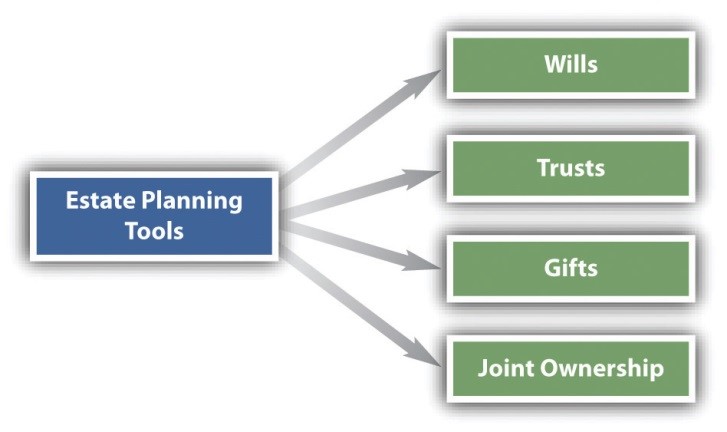Deceased Estates
A deceased estate comes into being upon the demise of a person. The said estate will then be administered and distributed in accordance with the Deceased person’s Will. However, if a person dies without a Will, his/her estate will be administered and distributed in terms of the Intestate Succession Act, 81 of 1987.
The entire process of administering (or “winding up”) the Deceased’s estate is administered in terms of the Administration of Estates Act, 66 of 1965 (or “the Act).
The General Process
Once a person has passed away, his/her estate must be reported to the Master’s Office in the area or jurisdiction in which the deceased person lived for a period of 12 (twelve) months before his/her death. This must be done with 14 (fourteen) days of the said death or as soon as reasonably possible. The documents to be submitted to (or “lodged” with) the Master’s Office will differ in terms of the total value of the estate, as such:-
If the total value of the Deceased person’s estate exceeds the current value of R250 000.00 (two hundred and fifty thousand rand), the Master’s Offices will issue Letters of Executorship in which a person, either elected in terms of the Will or nominated in terms of the Intestate Succession Act, will assume the role of the Executor/rix. The said Executor/rix will attend to the full administration of the Deceased person’s estate in terms of the Act and will have to account to the Master’s Offices in respect of said administration. It is important for the Executor to note that the Letters of Executorship grant his/her the necessary authority to act in respect of all matters and/or deal with all issues pertaining to the winding up of the Deceased person’s estate and will include: (i) the opening of the estate late bank account, (ii) the notifying of all third parties of the passing of the Deceased, and (iii) the determining of the assets and liabilities of the Deceased person and other duties.
If the value of the deceased’s estate is less than R 250 000.00 (two hundred and fifty thousand rand), the Master’s Offices may elect to issue Letters of Authority. Here, the nominated person is charged with the administration of the Deceased person’s estate without adhering to the full administrative procedure set out in the Act.

If the Value of the Deceased’s Estate Exceeds R 250 000.00 (Two Hundred and Fifty Thousand Rand)
The Deceased person’s estate must be reported to the Master’s Offices together with the lodgement of the following completed forms and the original or certified copies of the following documents:
- the Death Notice;
- the Death Certificate;
- the Marriage Certificate (if applicable) or any acceptable proof of marriage that the Master may request in terms of customary and/or religious marriages;
- the “Declaration of Marriage by the Surviving Spouse” describing the way in which the Deceased was married (if applicable);
- all original wills and codicils (if any);
- the Inventory form in which all the Deceased person assets are listed together with their values;
- 2 original “Acceptance of Trust as Executor” forms together with a certified copy of the executor’s/rix’s Identity Document;
- the Undertaking and Bond of Security which may be excluded by the Deceased person’s Will, or waived if the Executor/rix is the spouse, child or parent of the Deceased person; and/or
- where the Deceased person did not leave a valid will:-
- the Next-of-Kin Affidavit; and
- the Nominations for the appointment of an executor/rix which must also be submitted in the event that the nominated executor/rix dies or declines the said appointment.
Here it is important to note that the above is a list of the documents generally required in terms of the reporting of a Deceased person’s estate and may vary in special circumstances.
Winding Up Procedure
Winding Up Procedure
Once the Master Offices confirms that the Deceased person’s estate has been correctly reported, it will issue the Letters of Executorship. The Executor/rix will have to open an estate late bank account and advertise the death of the Deceased person in both the local newspaper in the area in which the Deceased person lived and the Government Gazette. In terms of the Act, the advertisement serves to notify the Deceased person’s creditors and debtors of the passing away of the Deceased and that they have 30 (thirty) days from the date of publication of the advertisement to submit their claims against the Deceased person’s estate.
After the 30 (thirty) day period has elapsed, the Executor/rix will determine the solvency of the said estate and draft the Liquidation and Distribution Account. The said account will list the assets and liabilities, and the distribution of the Deceased person’s estate between his/her heirs in accordance with the Deceased person’s Will or in terms of the Intestate Succession Act 81 of 1987.

The drafted Account will be submitted together with the necessary proofs to the Master’s Office for the approval of the Master. All outstanding issues and queries will be referred back to the Executor/rix for his/her amendment. When the Master is satisfied that the Liquidation and Distribution Account is in accordance with the Act, he/she will approve same and grant the necessary permission for the said Account to be advertised.
The Executor/rix will have to advertise the Liquidation and Distribution Account in the in both the local newspaper in the area in which the Deceased person lived and the Government Gazette. In terms of the Act, the said account must lay for inspection for 21 (twenty-one) days from the date of publication of the advertisement. Any person with an interest in the matter may forward their queries or lodge their objection with the Master’s Office before the expiration of the 21 (twenty one) day period.
If there are no objections, the Executor/rix may proceed with the distribution of the estate in terms of the approved Liquidation and Distribution Account. The Executor/rix will then submit proof to the Master that the estate has been finalised and if the Master is satisfied, he/she will issue a filing slip and the estate is formally closed.
Here it is important to note that the above process is a lengthy one. Therefore, heirs and all other interested parties should be prepared for delays that may occur during the winding up of any estate.
